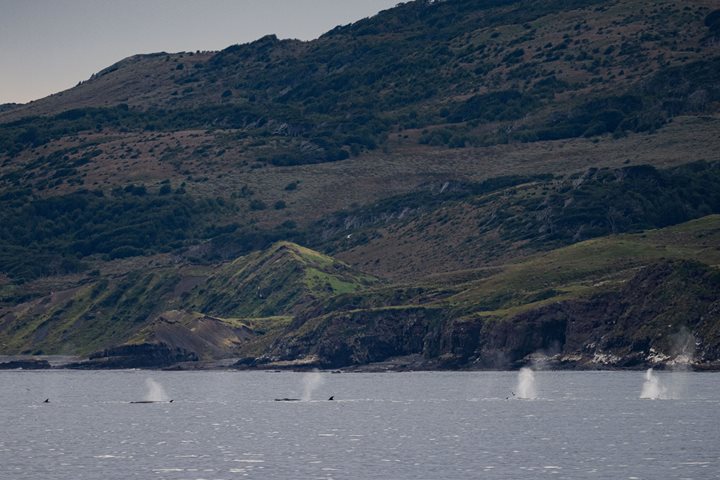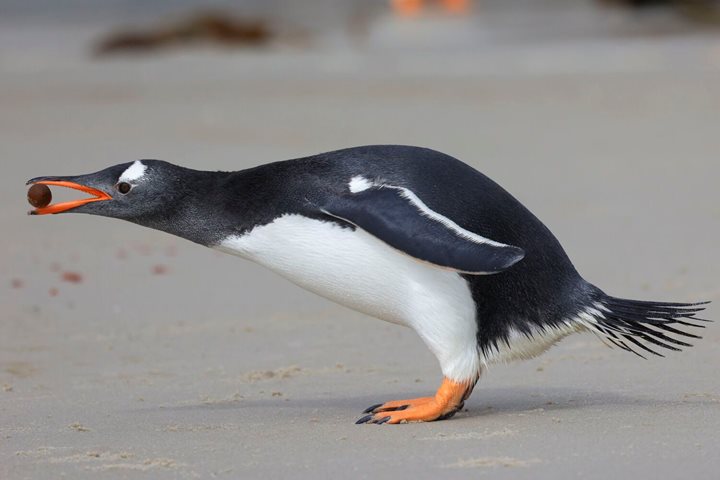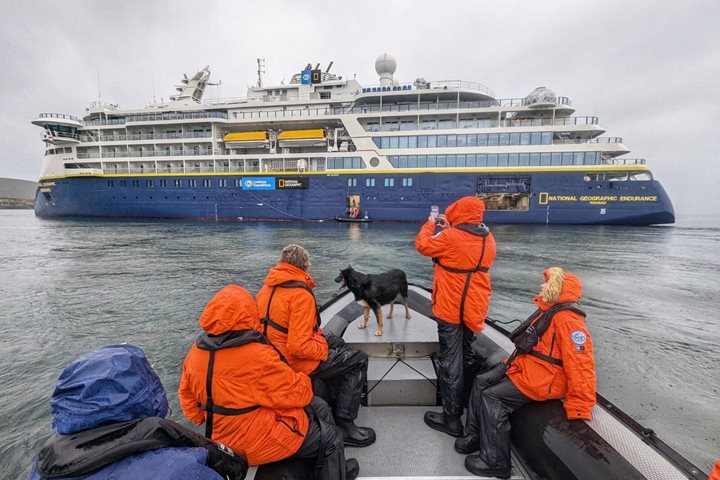“Four Seasons in One Day” – the title of a song that perfectly sums up the weather in the Falkland Islands, and we were treated to a shining example of that today. Walks around the town and to Gypsy Cove and Mount Williams required several changes of clothing and multiple applications of sunscreen along the way.
The colorful houses of the town grow in numbers every year as the population of the islands increasingly abandons the outer islands and centers itself in the capital. Young people have in large part moved away from the islands in recent years to seek education and jobs abroad, but many do indeed come back to their island home. I think that happens around the world, right?
For the bulk of its history, the Falkland Islands have been intimately associated with life at sea – ships rounding the Horn would often call in for supplies or repairs while polar explorers such as Shackleton called in to pick up sheep for the voyage. Some of the vessels never left. One, the Lady Elizabeth, sits in a rusting heap at the eastern end of the harbor. Having limped around the Horn in a damaged state, she was for many years anchored in the harbor and used as a floating warehouse until she blew away in a storm. Home now to a few rock shags that nest on board, she is gradually fading into the environment along with half a dozen other wooden ships that have, naturally, faded much faster.
The view from the ship included the rooftops of Stanley backed by the mountains that have familiar names to some of our historians on board – My Williams, Tumbledown, Hodges, the Twin Sisters. All were sites of the last phases of the Falkland conflict that left so many dead and injured, and even more embittered by its occurrence. To say that its memory is writ large on the Falklanders’ daily lives and thoughts would not be putting it too strongly. Many, including this author, had family members whose lives were damaged and lost in the conflict. The pain is real.
A walk to Gypsy Cove served to lighten the mood as we jollied along with a few passengers from other ships (some of whom boarded our bus)! Magellanic penguins stood looking uncomfortable on the beach which was so recently demined – they will soon be sporting their new feathers and will be able to recover at sea before the winter comes. Peale’s dolphins splashed out at sea, entertaining us as we were ourselves splashed by the occasional squall as it raced through from the west.
Lunch was spent in one of the Falkland’s true landmarks, the Victory Tavern. Home to sticky carpets and terrible TV, it is a legendary watering hole and a place that we visited with a sense of intrigue about this classic British institution. Thanks to expedition leader Lucho, the bar was free for the afternoon, and the beer garden was soon full of orange jackets enjoying themselves.







